ETHTokyo Highlights
Highlighted projects and talks from this year's Ethereum conference in Tokyo.
こんにちは! Greetings from Japan! I had the opportunity this week to attend ETHTokyo in Shibuya, and given the conference’s relatively low attendance I figured I’d do a quick write-up of the highlights. The good, the intriguing, and the decidedly Japanese.
I’ll briefly go over projects that caught my attention, a few talks, and my general takeaways.
What is ETHTokyo?
ETHTokyo is a small conference and hackathon based out of Tokyo, Japan. Founded in 2023 and organized by Ethereum Japan, the conference is relatively new in the Asia circuit, but attendance has climbed steadily in the last two years. The conference itself is a single day, while the hackathon extended through the weekend.
The conference is positioned for an international audience, so nearly all of the talks (and all of the panels) were hosted in English. Vitalik Buterin has been a firm supporter of the conference since its inception, and appeared in both a fireside chat and a panel on Friday. The cost of attendance was relatively low (90 USD) and admission included entrance into the hackathon.
Project Highlights
Before digging into a couple of talks that were given, I figured I’d give a shoutout to a few projects that caught my attention. Because of the size of this conference, I got a chance to talk to nearly every booth. The conference took place at United Nations University, with two floors of the building dedicated to booths and talks.
BitSeek
The only AI x web3 project at the conference, BitSeek is a deAI platform that allows developers to build AI-native dApps without centralized servers by facilitating a global network of independent GPU nodes (like Akash). Key features include offering users private AI with full data ownership, and rewarding contributors for powering workloads.
The goal here is decentralized, censorship-resistant, and private AI models that (will one day) be verifiable across (all) blockchains. They’re calling it deLLM (decentralized large language models). You can find more info on their modular approach to deAI here.
BitSeek isn’t live yet. There’s a waitlist for using it, and the best way to track the progress is to check out their X account. I’ll be tracking the progress in the coming months.
Japan Smart Chain
As soon as I read about JSC, I was having flashbacks to my Binance Smart Chain days. What’s in a name?
Japan Smart Chain (JSC) is an ‘Ethereum Equivalent’ Layer 1 blockchain, validated onshore in Japan by Japanese industrial leaders, and optimized for Japanese regulations and consumer protections.
With Japan proceeding with plans for a digital yen one immediately begins to think, well, what about a yen stablecoin? How feasibly might that be in the near future? Turns out, the Japanese government has a number of compliance concerns and boxes to tick off before even considering using a traditional blockchain for a stablecoin variant of the yen. And while this is purely in the talking phase right now, JSC is aiming to be ahead of the pack. Japan Smart Chain was built from the ground up with Japanese compliance in mind.
Features include:
Sovereign blockchain: Guarantees Japanese data residency with all validators located onshore, minimizing outside regulatory influence.
Low-cost payments: Supports stablecoin transactions at a fraction of standard payment method costs, enabling real-time, cost-effective domestic payments.
User-controlled identity: Provides compliant eKYC and decentralized identity (DID/VC) tools for free, ensuring no personally identifiable information is exposed on-chain.
Built-in compliance: Uses Mizuhiki Protocol (created by JSC) to monitor blacklisted addresses and enforce adherence to Japan’s latest regulatory standards.
Versatile use cases: Powers applications across domestic payments, DAO governance, rewards/loyalty systems, and real-world asset tokenization.
Trust and reputation: Designed to provide a trustworthy, well-governed foundation for Japanese companies and government agencies to build and experiment with Web3.
The takeaway here is this: JSC wants to be the solution for the future of Japan in web3. Especially compared to other Asian countries like South Korea, Japan has been relatively slow for crypto adoption (it isn’t as talked about, and you don’t see advertising for it anywhere). With the inevitable digitization of the yen, many think this will change in the next few years. JSC aims to be ready for when that happens.
Geode
Geode, which is a spin-out of the Ethereum Foundation is an ecosystem product studio that focuses on advancing global Ethereum development. It emphasizes the geographic roots of Ethereum by supporting local communities, universities, startups, and policy initiatives that strengthen the network’s decentralization. The organization builds educational tools and community infrastructure, while also facilitating grants that fund hackathons, bootcamps, research, and security training across the world.
They host a job board here. You can also learn more about their grant program here.
Talks and Highlights
I spent more time talking to people during the conference than really sitting down and intently listening to talks. As many of you know, talks can often be either so surface-level that you learn nothing, or so granular that you need an intimate understanding of a topic to get anything out of it.
The conference had a healthy mixture of talks, from deeper technical dives (a talk on post-quantum cryptography delivered in Japanese) to more cultural (On-chain IP and Neo-Culture).
I really enjoyed Molecule’s talk on the state of DeSci in web3. Molecule is a protocol and exchange for on-chain scientific IP, turning research that is normally siloed into liquid markets powered by open data.
One fun thing from Molecule’s talk: AubrAI. A digital twin of the famous longevity research scientist Aubrey de Grey, trained on talks and research notes by Aubrey. Check it out here: https://x.com/Aubrai_. You can go to the site and read up on hypotheses the AI has come up with. Bio.xyz has a market tracker for agents and DAOs within the DeSci space.
Most excitedly of all, Vitalik Buterin himself attended the conference. He spoke during a fireside chat, and also participated in a panel later in the day.
I sat in on the fireside chat, entitled ‘Bridging East and West: Stories from the Early Days of Ethereum and Asia’s Support’.
Vitalik had a few interesting nuggets to say, but nothing that I felt was particularly groundbreaking or surprising. Ultimately, he was at the conference to support Ethereum, and the crowd couldn’t have been more excited to have had him there.
At one point, Andy (from Fenubushi Japan) asked Vitalik during the talk how Asia has influenced him. The crowd waited, and Vitalik ultimately said that he ‘had no real way of knowing how precisely he was influenced by Asian culture’. This struck Andy by surprise, who noted that Vitalik’s X account has aspects of zen influence in the description.
Moving Forward
ETHTokyo was super chill, and the most relaxed Ethereum conference I’ve ever been to. Attendance was relatively low, especially compared to upcoming conferences like KBW and Token 2049, but it’s cool to see Japan slowly embracing the wacky wild world of web3. I think it comes as no surprise that immediately out of the gate, we’re seeing a strong emphasis in Japan for practical projects, and ones that have compliance and regulations in mind from the get-go.
Thanks for reading. If you enjoyed this write-up, let me know!
Talk soon,
Chris



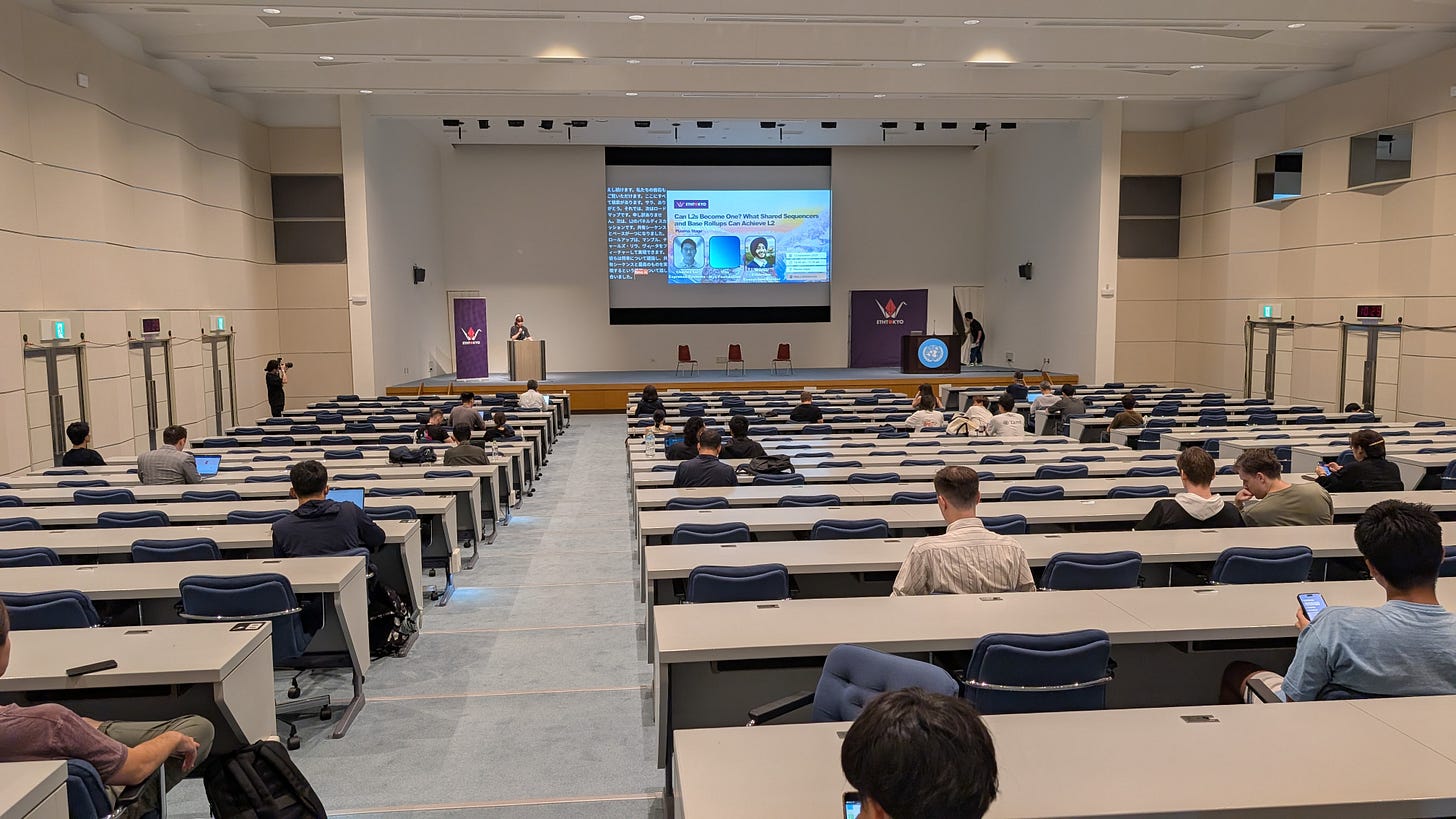
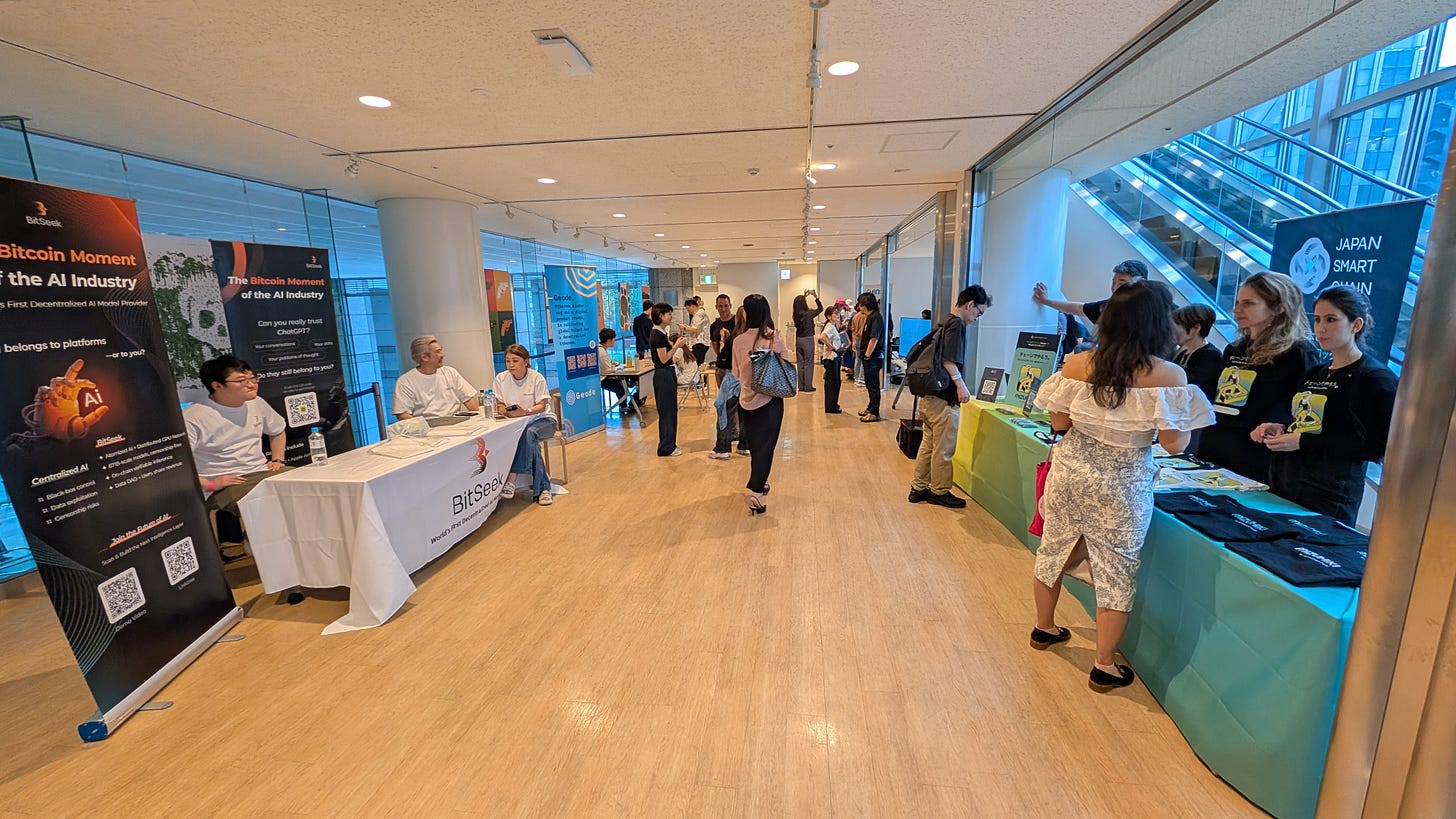
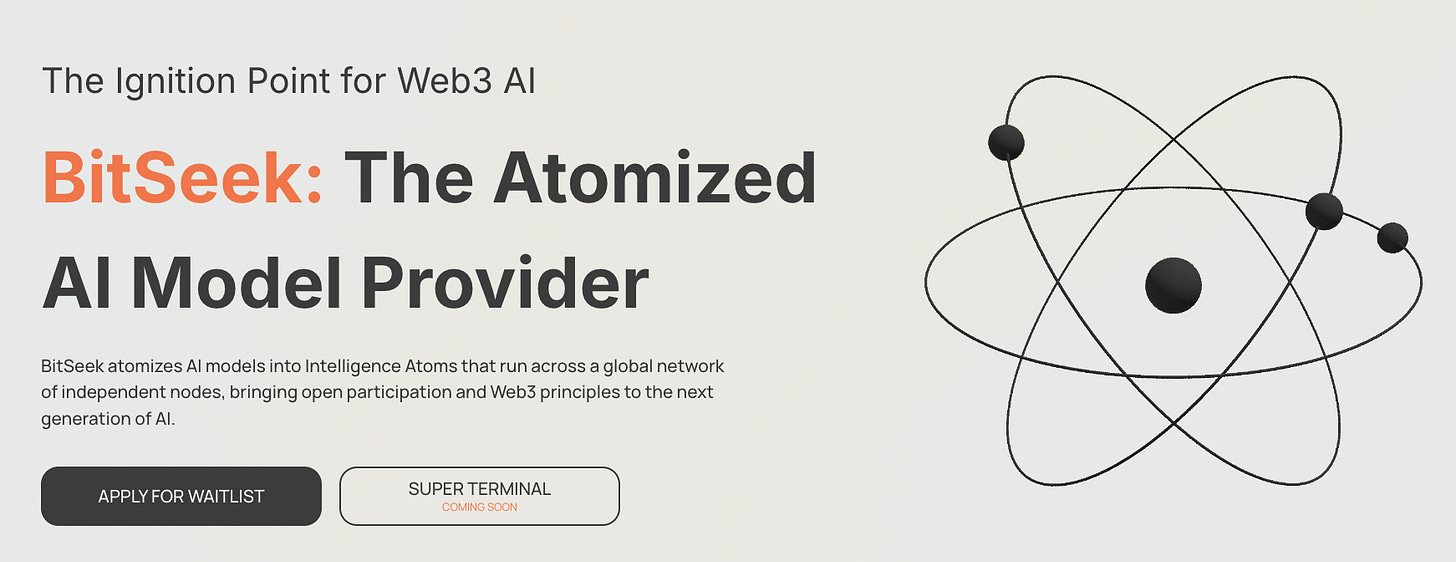

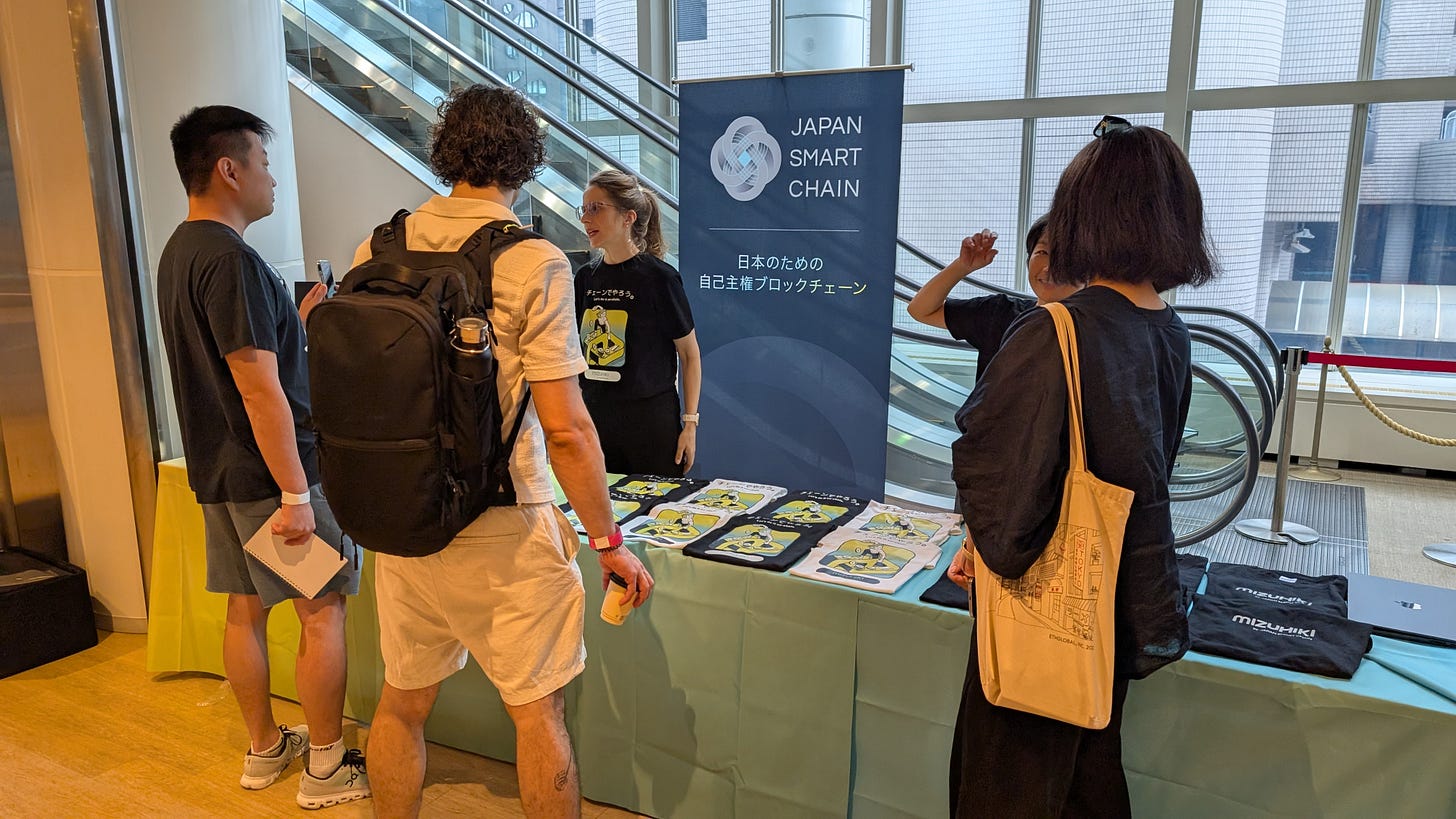
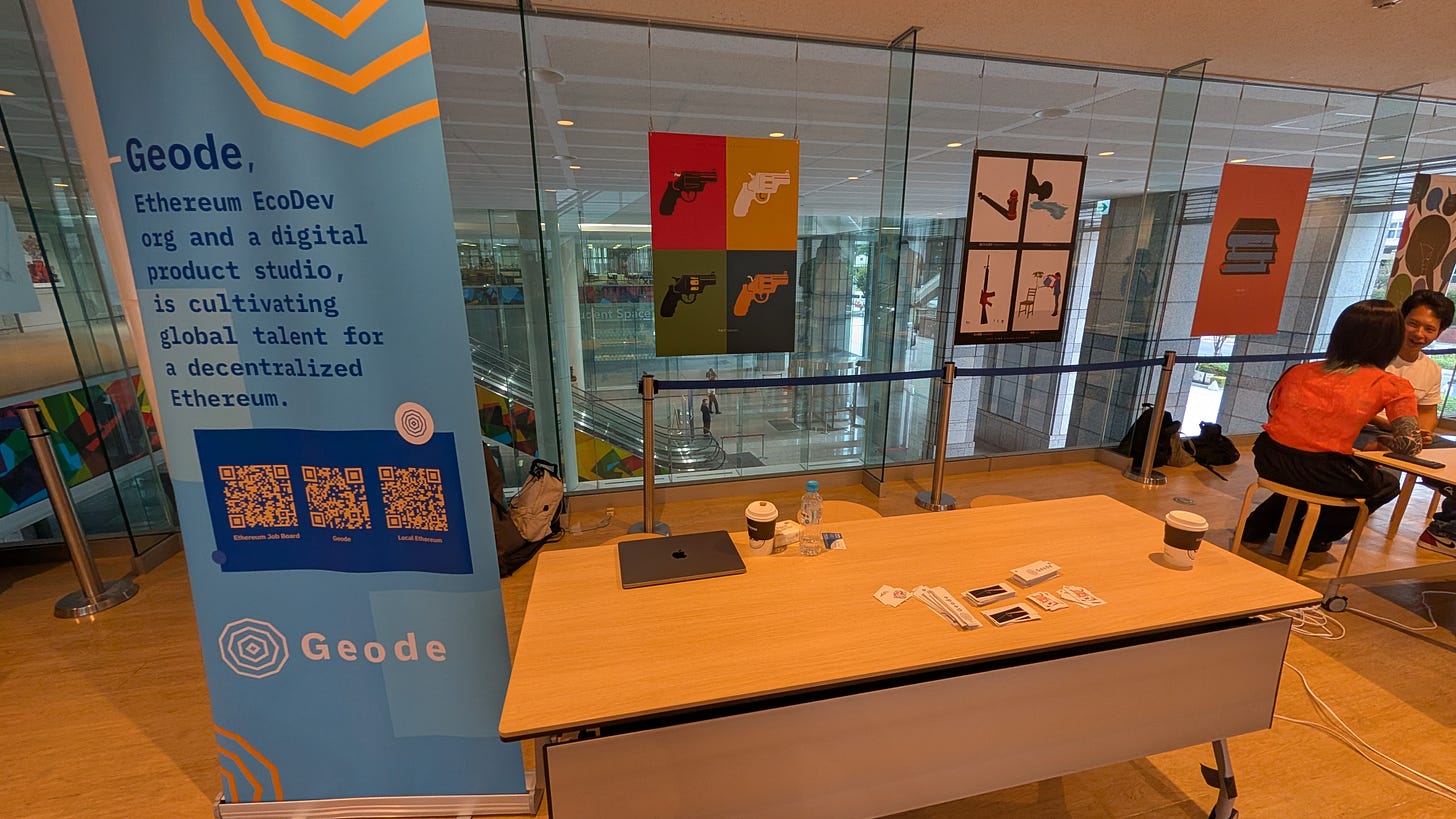
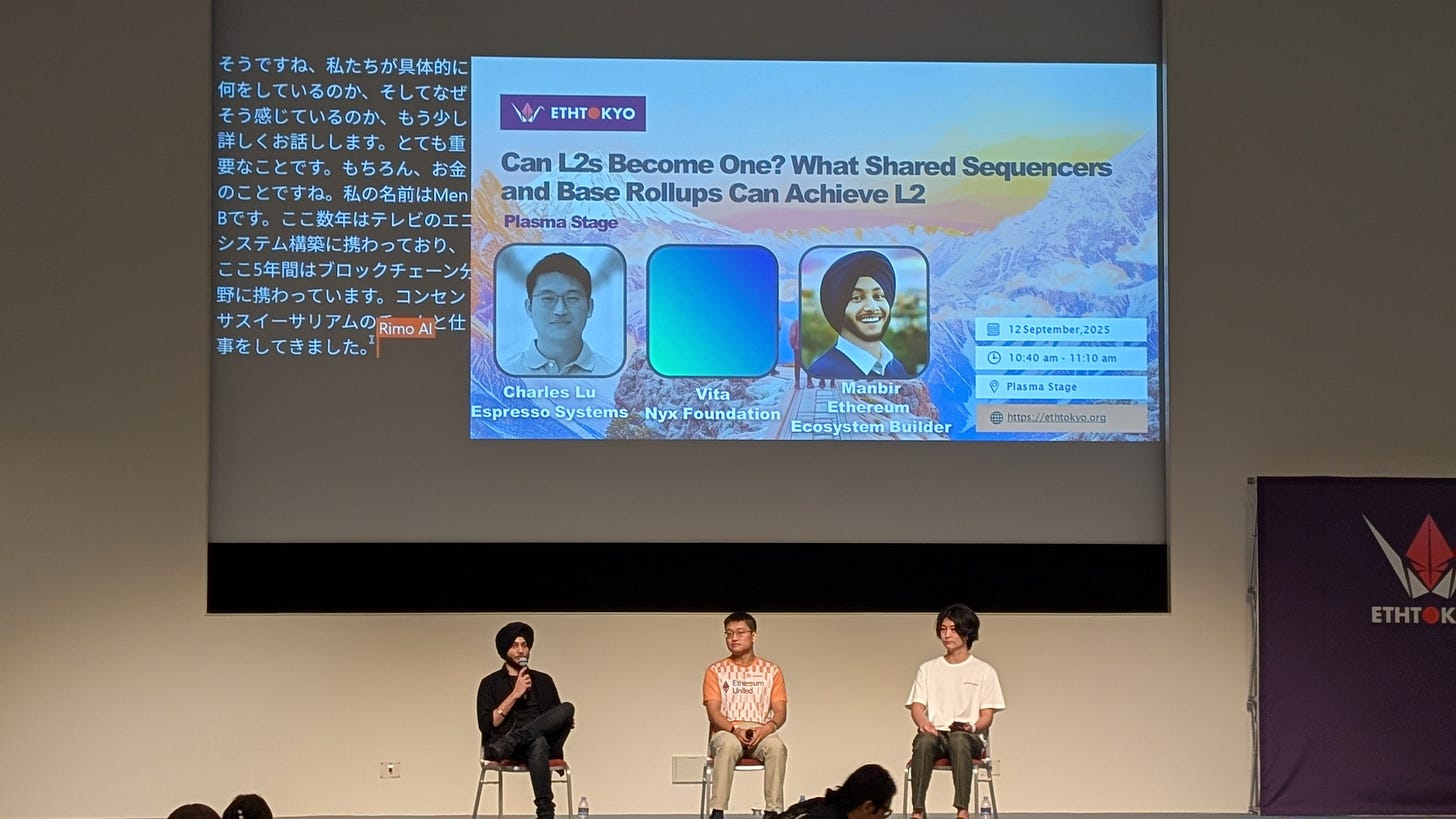
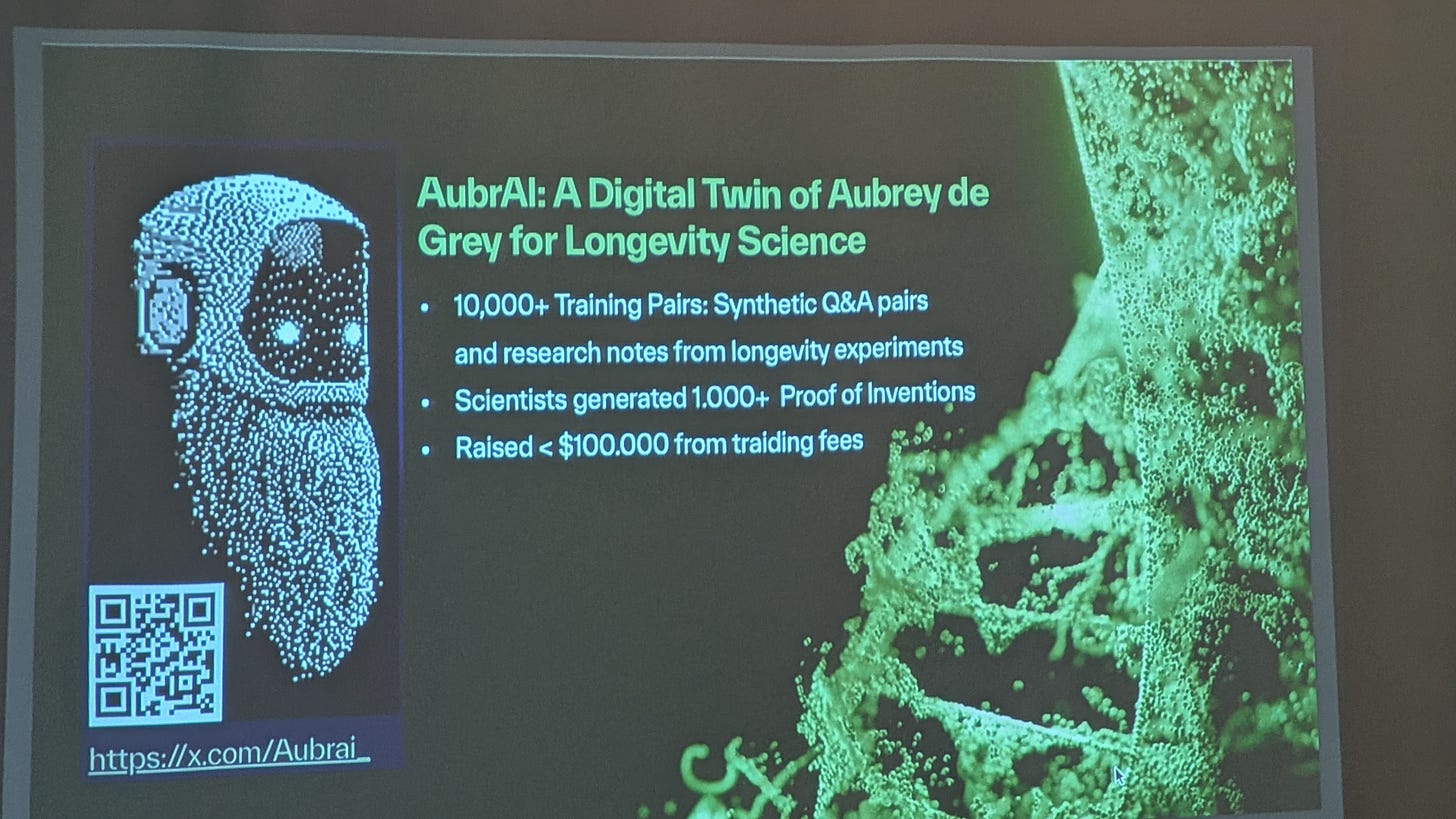
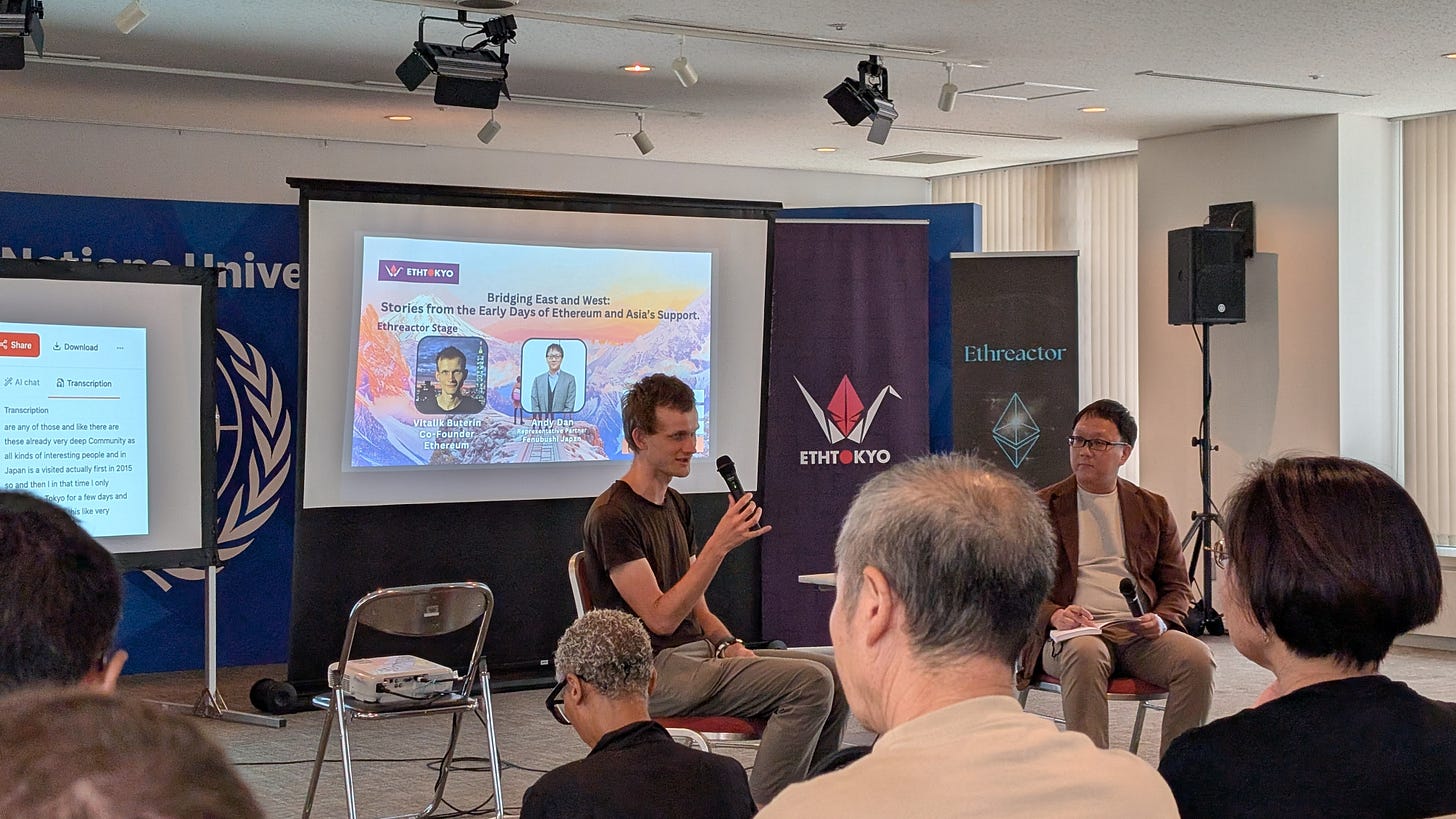
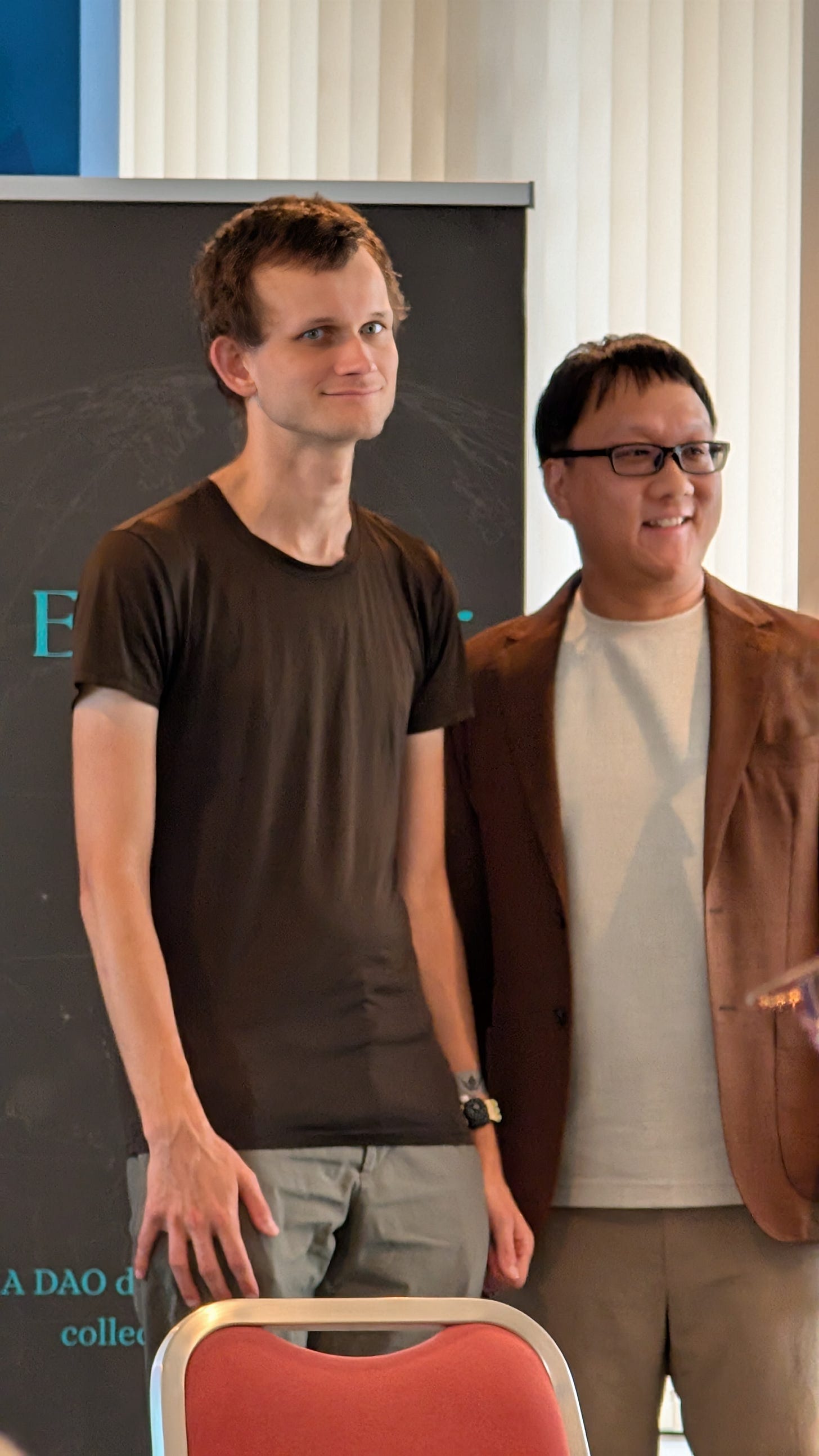

Letting you know that I enjoyed this write up